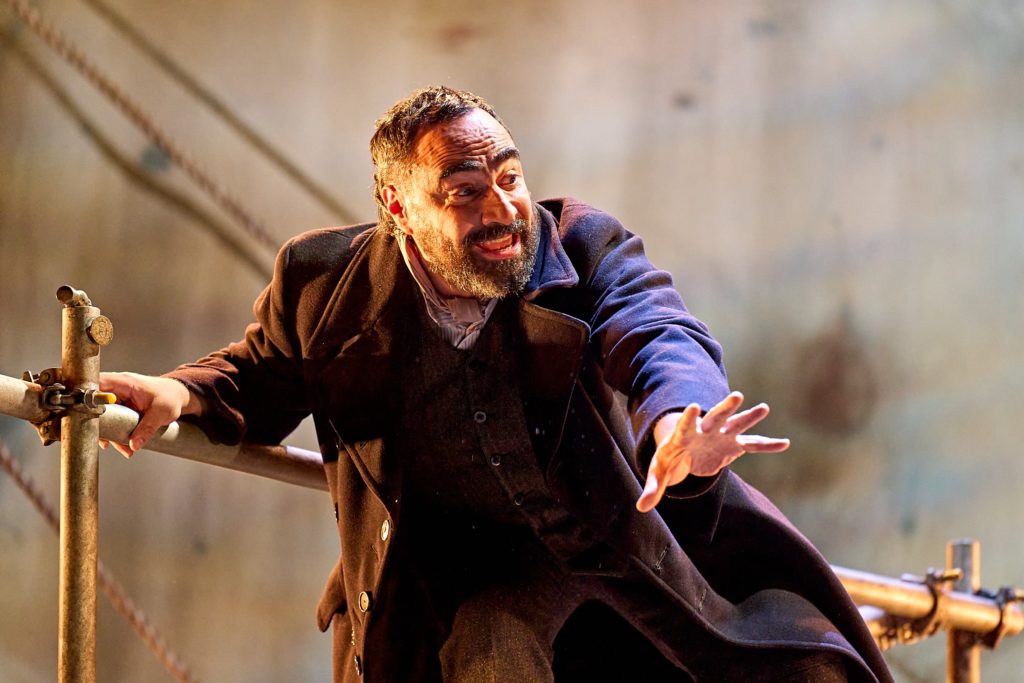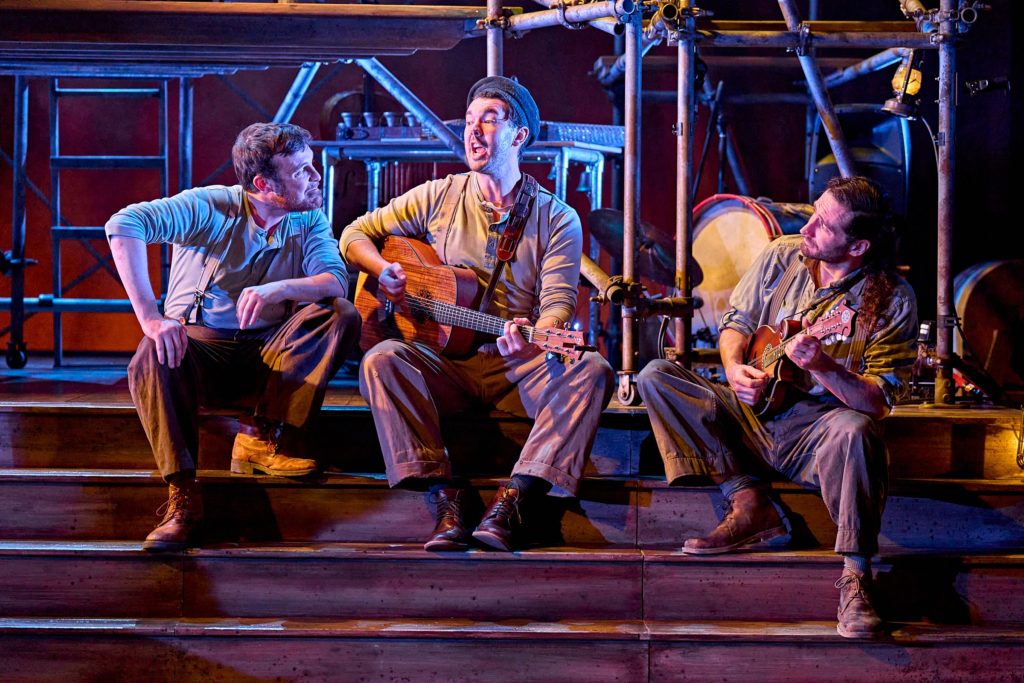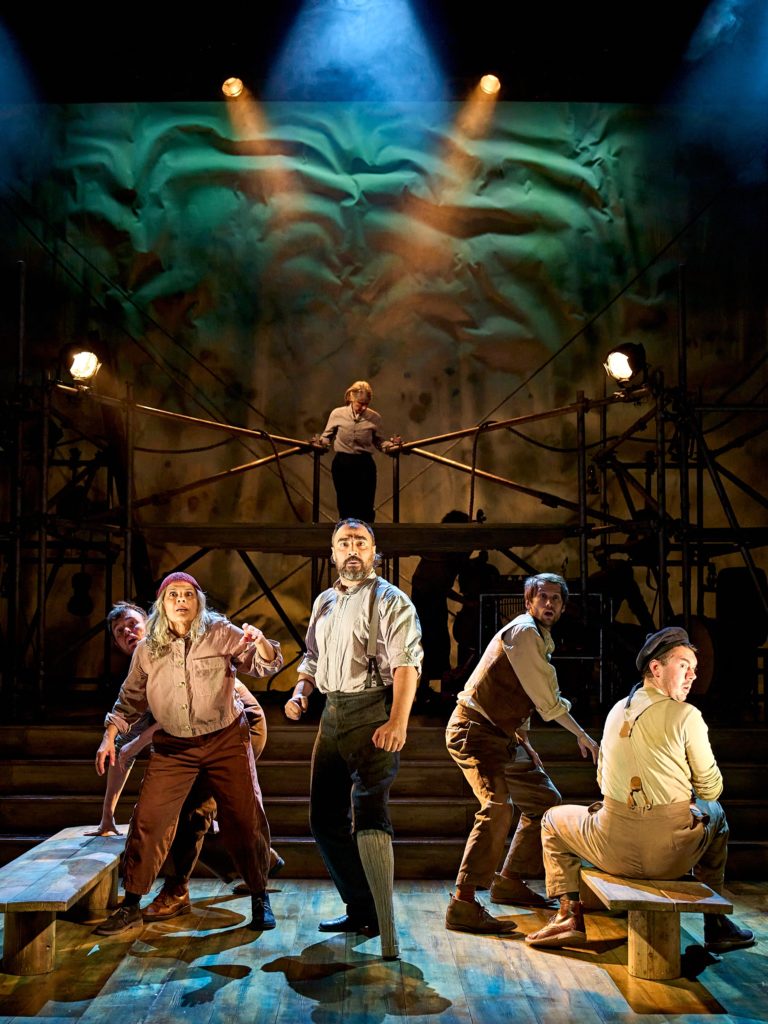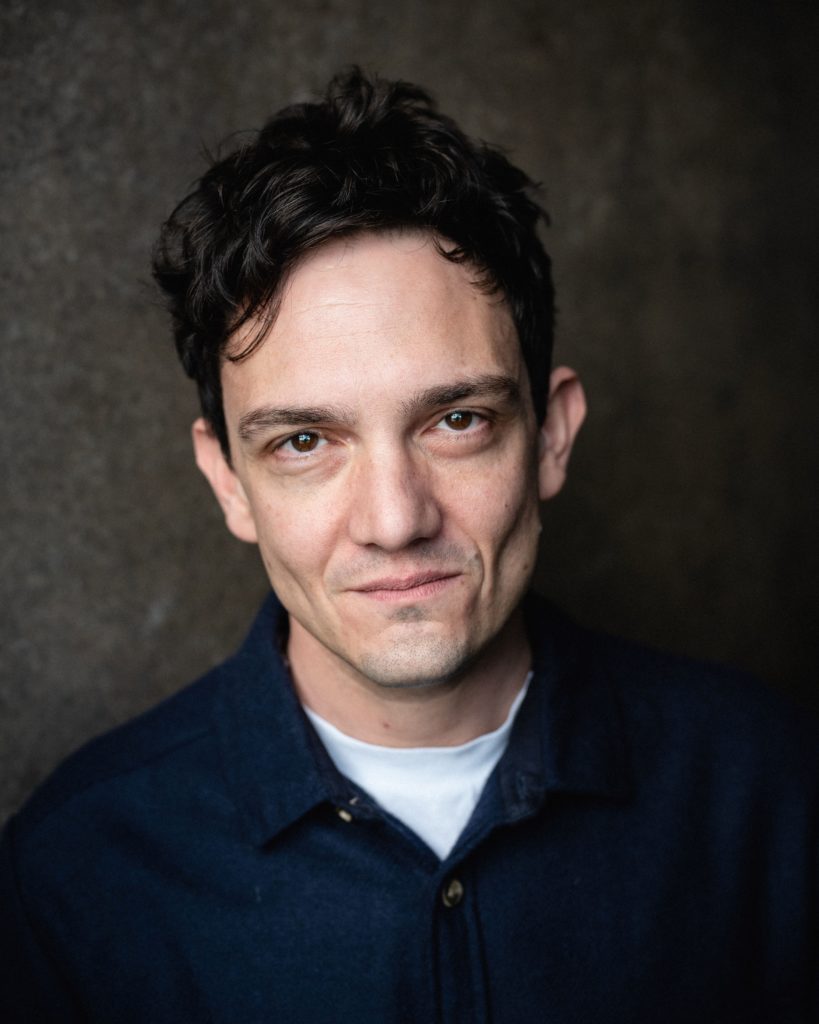
MOBY Dick, Herman Melville’s leviathan tale of vengeful whaler versus great white whale, keeps returning to the Yorkshire stage.
Remember Slung Low’s The White Whale on water at Leeds Dock, the one with headphone sets for the audience, in September 2014?
Or John Godber and Nick Love’s version for the John Godber Company, the one with crates and bicycles, in the repurposed dock of Hull’s amphitheatre Stage@TheDock in June 2021?
Now, from Thursday to Saturday, York Theatre Royal plays host to Sebastian Armesto’s adaptation for Simple 8, the indoor one with sea shanties, planks of wood, tattered sheets and a battered assortment of musical instruments.
Why should you see this one? “It’s mercifully brief and means that if you haven’t read the novel you can watch our show and then pretend that you have,” says a droll Sebastian.
“Mercifully brief”? Two hours, including the interval, should you be wondering, as Royal & Derngate artistic director Jesse Jones’s ensemble cast of nine actor-musicians presents “a fun, fast and joyous production that transports you right to the heart of the hunt for the most famous whale on Earth”.
Mirroring whaling voyages, Jones’s ensemble must apply graft, not only conjuring ships, seas, storms and even whales from sparse means, but also playing and singing all the sea shanties live, in the Simple8 house style of “poor theatre” of multiple roles and minimal materials where “everyone does everything”.
Then add the task of taking the nautical indoors as Guy Rhys’s Captain Ahab and the Pequod crew seek vengeance on Moby Dick, the whale responsible for taking his leg.

“Not only the setting is a challenge, but so is the size of the novel the play is adapted from, the ‘ginormity’ of the beast, the scale of the drama, the sky, the sea, and then there are the massive themes of the novel,” says Sebastian.
“In taking it indoors, there’s an element within it that suits the forced imaginative leap, where the suspension of disbelief inherent in theatre is directly within the fabric of the novel too.
“In the book, there are chapters and chapters about what a whale is – its bulk, its history – so it’s a novel that’s trying to devise meaning for everything. The whaling industry. Ahab’s character. Whale behaviour. The existential crisis.”
Sebastian continues: “The idea that you have to do it with nothing on stage sort of aligns with the novel’s struggle with itself. That’s my justification for not doing it in a dry dock, though I might enjoy that.
“I’ve seen a Norwegian production with puppets, a dance production, John Huston’s [1956] movie starring Gregory Peck and Orson Welles: whalers in pursuit of Moby Dick to their eventual demise, just as it will destroy you in pursuit of it. I’m sure it’s folly to try to adapt such books, but it’s also part of the pleasure.”
Sebastian reckons Melville’s novel is “one of those books that people would rather prefer they didn’t have to read, with its meandering passages”, but nevertheless he has a long association with Moby Dick.
“I adapted it a long time ago, previously completing an adaptation in 2010, but it wasn’t until 2013 that we first staged it, when I directed it,” he recalls.
“I was told that I did turn into Captain Ahab, obsessed with physical movement, to the detriment of everyone else, which doesn’t surprise me – and I apologise for that.”

Reviving his adaptation for Simple8’s tour, the script has changed, “as it inevitably will because it will never be complete,” he says. “Watching it fires me with more ideas and more things that I can do. This production and the text are evolving: the play is fluid, rather than solid.
“It’s been rewarding to go back to it. There are bits that I had forgotten, parts of the novel too, though in the end, there are things in the re-write that have not made it into the new version on stage for practical reasons.”
Significantly too, the existential fear and threat of the Covid 19 virus, its enforced lockdowns and resulting isolation, have given new resonance to the psychological and psychiatric impact of an unknown threat in Moby Dick.
“I come back to the initial discussion about putting Moby Dick on stage, being forced to imagine, when even the characters in the book don’t see Moby until the last 15 pages,” says Sebastian.
“Mime is very important to this production, particularly the idea that the actors are collectively committing to something that is completely imaginary, so there’s a lot of very intense physical storytelling, emphasising how they are grappling with something that they don’t fully understand.
“Post-pandemic, everyone has been grappling with something they couldn’t see, didn’t understand and were contained and confined by. That sense of being pursued by an unseen threat, endangering your survival, is really clear post-Moby Dick, with its imprint on other stories, from Joseph Conrad’s novels to Jaws.”
Simple8, in association with the Royal & Derngate, Northampton, present Moby Dick, York Theatre Royal, June 6 to 8, 7.30pm plus 2.30pm Saturday matinee. Box office: 01904 623568 or yorktheatreroyal.co.uk.
Sebastian Armesto: the back story

Born: June 3 1982. Son of historian Felipe Fernandez-Armesto.
Education: Eton College.
Occupation: Film, television and theatre actor, writer and director.
Acted in high-profile theatre productions in Great Britain, including shows at National Theatre and Royal Court, London.
Writes and directs theatre with Simple 8 company.
Productions include directing and adapting Les Enfants du Paradis; co-writing and directing play based on William Hogarth’s The Four Stages Of Cruelty and new versions of The Cabinet of Dr Caligari and Moby Dick.
Influence on directing style: 1981 Ashes-winning cricket captain, psychotherapist and psychoanalyst Mike Brearley’s book The Art Of Captaincy: What Sport Teaches Us About Leadership.
